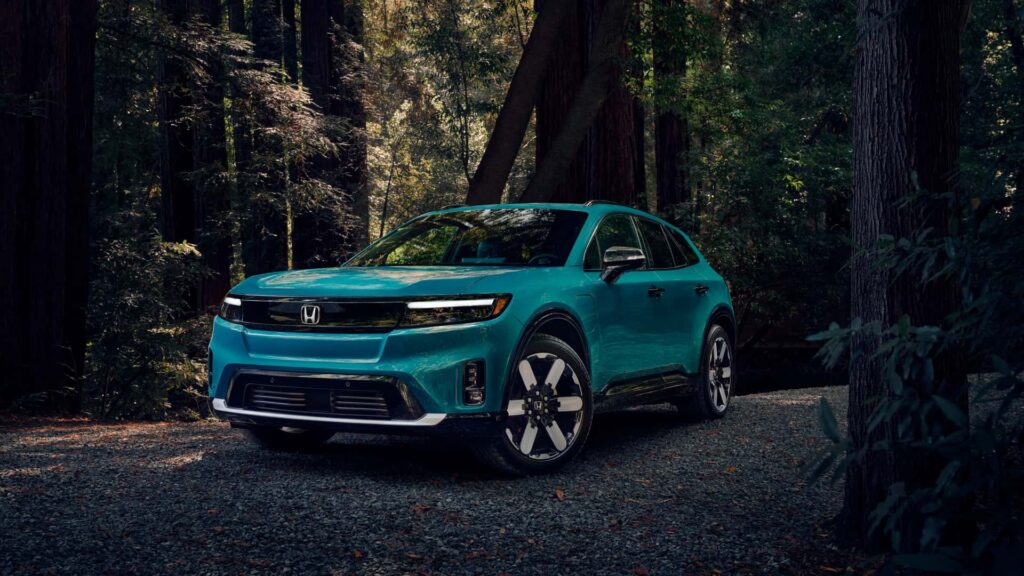I once thought that Honda’s EV platform tie-up with General Motors would result in more bespoke products—vehicles that may have shared some things under the skin, but otherwise felt like wholly original products. The Acura ZDX and Honda Prologue looked so much different from what we’ve seen on the Cadillac Lyriq, Chevrolet Blazer EV, or China’s Buick Electra E5. And yet, when the car was revealed past its exterior photos, it became exceedingly clear that Honda and Acura’s EV GM-based EV efforts are way more similar under the skin than meets the eye; a fact validated when we finally got behind the wheel of the car. The Honda Prologue is essentially a Honda-skinned Chevrolet Blazer EV.
Of course, that begs the question: since the Prologue (and ZDX) are so similar to the Blazer EV, will Honda’s efforts be vulnerable to the same charging and infotainment issues that have plagued current Ultium owners?
Get Fully Charged
The Honda Prologue shares much in common with the Blazer EV
The Chevrolet Blazer EV has been a problematic launch for GM, with software and charging glitches galore. The model went under a stop-sale in December 2023, which has yet to be lifted, directly related to infotainment software issues similar to what we’ve experienced in our Blazer EV test. Honda hopes that its GM Ultium derivative won’t experience the same issues.
“We certainly hope not,” said Quincy Tam, a senior product planner at Honda, when I asked him if Honda owners could be in for the same problems. While at the launch event for the 2024 Honda Prologue, I spoke with as many reps from Honda PR, engineering, software, and design that I could find. Although Honda’s people said they’ve changed some of the underlying software, the consensus was surprisingly less resolute as to whether the Prologue was good to go.
If you haven’t read our piece, a 2024 Chevrolet Blazer EV left me stranded in Virginia after breaking down during a charging session at an Electrify America station in Wytheville, Virginia. Even before that, I experienced many issues with the Blazer EV’s Google Android-based infotainment system, as it constantly crashed and restarted, with the blank screen holding for sometimes hours at a time.
Our experience with the glitchy and broken Blazer EV isn’t unique. Edmunds and Consumer Reports have complained about similar issues and problems, as have a small army of Blazer, Lyriq, and Hummer EV owners.

Honda’s representatives were cautiously optimistic, if not choosy with their words, about the probability of the Prologue suffering the same woes as the Blazer. “I will not be able to promise that, no, but, I can say there is a good chance that we won’t, because of the fact we have completely separate development teams,” Tam said.
“The software integration and [platform development] are completely different teams,” he added. “Now that we’re able to see the launch of Blazer, our team, which is actually a collaboration of GM and Honda engineers together, are taking their learnings to make these corrections ahead of time. While you unfortunately had to experience the early release they had to offer, we were able to learn immediately, and apply any [fixes].”

Tam says that one of the biggest changes that the Honda team applied related to charging. Honda altered the Prologue’s charging curve, so it ramps up less aggressively. Honda says this should make the Prologue’s charging experience more consistent, rather than having a fast ramp-up, and a fast drop-off. Still, Tam stopped short of claiming that this could fix any potential problems, nor was the issue with my Blazer EV charging failure.
For the record, InsideEVs has yet to receive an official reason as to why the Blazer EV failed as it did in Virginia. Electrify America claims it had nothing to do with the station, whereas GM hasn’t said much of anything since.
I was unable to do any sort of fast charging during the Prologue launch event, nor would it have even been a guarantee if the car would have failed, glitched, or succeeded during that charging event anyway. I pressed Tam, and several other Honda PR and engineers in the room, and they told me that they hadn’t seen any of those issues in their testing.

Likewise, Honda said it hasn’t experienced any of the same infotainment glitches that the Apple CarPlay-less Blazer EV has. Tam says this is in part because Honda’s engineers strived to keep the underlying software fairly uncomplicated, even if it might be using the same basic software as the Blazer EV.
“We kept it very simple,” he said. “We kept it as close as possible to what we offer on our cars, it didn’t complicate the programming, it is a simpler operation, and it worked. At the end of the day, that’s what we wanted from our customer experience, that it’s not going to fail on them.”
Tam’s colleague John Hwang, product development chief for the Prologue, agreed. “From all of the preproduction cars that we have, and that we’ve worked on with GM, we have not run into this issue,” Hwang said. That includes any of the same issues with Electrify America, or any failed infotainment issues many have experienced on the Blazer, Lyriq, and Hummer EV.
Interestingly, when I asked if Honda’s teams had been made aware of the software issues, Hwang said, “Both our teams (Honda and GM), are based on collaboration, but we are not allowed to share what’s going on outside. I’m sure within GM, they understand what’s going on, and they’re addressing it, but they [haven’t given any reason] to believe that [Honda] be under the same kind of issues.”
Tam says the Prologue’s production line is in place, and as of right now, it is unaffected by the stop-sale on the Blazer EV. Let’s hope and pray that the Prologue won’t experience the same issues; I’m sure GM’s engineers didn’t think it would catastrophically fail on so many owners, so Godspeed to Honda here.

